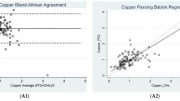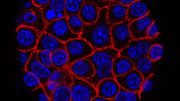Patients receiving surgical treatment for Stage III colon cancer may benefit more from physical activity.
In a recent study from Pennington Biomedical Research Center, 1,696 patients who had had chemotherapy and surgery to treat Stage III colon cancer were evaluated. The study was published in the Journal of Clinical Oncology.
The study looked at how various forms and levels of physical activity might affect how long patients lived healthy lives.
In particular, researchers evaluated the type and total amount of physical activity the patients engaged in. The researchers contrasted vigorous aerobic exercise, mild and moderate physical activity, brisk walking, and muscle-strengthening exercise.
Even while many colon cancer patients first beat the disease, up to one-third of them go on to experience a cancer relapse, which is frequently fatal.
The impact of various types and intensities of physical activity on disease recurrence and death in colon cancer survivors was unknown prior to this investigation. Patients are encouraged by current clinical recommendations to merely avoid inactivity.
“Colon cancer survivors are typically advised to avoid inactivity, but many patients desire detailed advice on the kinds of activity that will optimize their chance of recovery.
According to Justin Brown, Ph.D., director of Pennington Biomedical’s Cancer Metabolism Program, “this study gives oncologists and their patients particular information on exactly what kind of activity will be most helpful in their aim of being alive and cancer-free.
What we discovered is that higher levels of leisure activity, longer periods of light- to moderate-intensity aerobic activity, or any vigorous-intensity aerobic activity were connected with the highest chances of surviving and avoiding cancer.
Patients should first decide on a physical activity they enjoy before consulting the study’s findings to discover how much of it is necessary to reap the benefits of such health. You are more likely to persevere with an activity if you enjoy it.
The study was conducted as part of an ongoing National Cancer Institute (NCI) experiment that examined several pharmaceutical treatments in individuals who had colon cancer surgery and were followed for almost six years.
By doing this study as an outgrowth of the NCI trial, Brown stated, “we were fortunate to be able to eliminate many of the usual restrictions of earlier trials and to allow us to focus on what will assist the patient and what might not.”
This ground-breaking research project offers patients very specific recommendations on how they can regain some level of control against a disease that frequently feels overwhelming, said Pennington Biomedical Executive Director John Kirwan, Ph.D. “We know that healthy lifelong habits can make a difference in cancer survivors’ overall wellness,” he added.
The journal article includes comprehensive graphics explaining the advantages of various forms of physical activity as well as the recommended weekly dosage for achieving disease-free survival.





